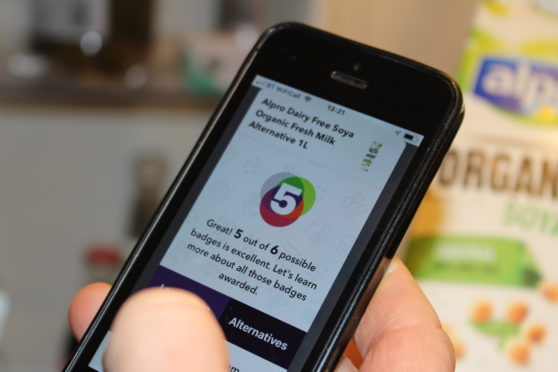
With Extinction Rebellion in full swing and environmental demonstrations being staged across the planet, the world is currently witnessing one of the largest global protests ever seen.
Millions of protesters across the world are demanding the cutting of greenhouse gasses, with those in the UK saying the country must hit net zero emissions by 2025.
Hundreds of arrests have taken place globally, with many activists resorting to extreme measures like gluing and chaining themselves to government buildings.
In light of this, for those less comfortable with demonstrating directly in Extinction Rebellion, but who want to take action, there are many other ways to make meaningful positive environmental impacts, says sustainability expert, Jo Hand.
Jo is co-founder of Giki, an app which helps consumers shop more sustainably by scanning products from major UK supermarkets to determine if they are both environmentally friendly and healthy.
Here, she tells The Sunday Post exactly how anyone can make a positive change to the environment without having to take to the streets.
How can people who don’t want to protest with extinction rebellion make an impact to sustainable living and climate change?
There are lots of ways to make a difference for those among us not ready to hit the streets with Extinction Rebellion. At Giki we believe that everyone of us can make a difference in and our own environmental footprint is a pretty good place to kick off with.
One quarter of our impact comes from the food we eat, so selecting low carbon products can make a real difference. You can check out on Giki the carbon footprints of UK supermarket products and this is a great place to start. In addition, changing to a green energy provider can also make a real difference – this cuts the carbon footprint of your electricity supply by over 90%!
Do you think extinction rebellion is helping the cause of environmental sustainability. If so, how?
Extinction Rebellion has done a huge job in raising awareness of the urgency to address climate change. Soon after their demos in the spring, Theresa May‘s government in the UK declared a climate emergency.
The movement now has support globally and although there has been some criticism around the types of people involved and the disruption, the mood remains optimistic.
We have visited the demos in London and what is most striking is the breadth of representation, from children and students, to grandparents and professionals and how polite everybody was!
Why did you start Giki?
The idea for Giki first came in 2016 when we - my husband James and I - were thinking about why so many people were concerned about the environment but struggling to work out what to do about it.
They were not able to buy in line with their beliefs. We built Giki to change this, so that everybody can make decisions based on what is important to them and to protect their health and the environment.
Our mission is to help people cut their environmental impact. We provide accessible, independent, transparent information to help people change habits to live more sustainably.
Can you tell us about the app?
Giki is a mobile app that offers a practical solution for everybody in the UK to shop sustainably and reduce their environmental impact daily: the app informs people (for free) about the UK supermarket products they buy and the companies they buy from, by awarding badges to products based on sustainability, health and fairness.
We want to make it easier to live a more sustainable lifestyle. Carbon emissions are a really important part of this and food and drink make up a quarter of our personal carbon footprint
This the first ever tool that enables you to check quickly and easily the carbon footprint of UK supermarket products. Although a very small number of products do list their carbon footprint on pack, this is very unusual.
There’s a lot out there about ways the individual can help with sustainability, but don’t you think it should be corporations and governments really taking charge? Do you think this is ever likely to happen?
The scale of the environmental challenges we face are enormous. Not only is there a climate emergency, we also face a biodiversity crisis where one million species face extinction.
In addition to this, the plastics problem, highlighted by David Attenborough’s Blue Planet requires urgent attention too.
So the reality is that we need governments to act all over the world. We need corporations to transform unsustainable practices and we, as individuals need to ask the governments who rule us and the businesses who provide products and services to us to address these issues urgently.
In essence, it is a combination of individual action, government policy change and business transformation that will help us solve the problems we face. Will it happen?
We hope for future generations that it does.

Enjoy the convenience of having The Sunday Post delivered as a digital ePaper straight to your smartphone, tablet or computer.
Subscribe for only £5.49 a month and enjoy all the benefits of the printed paper as a digital replica.
Subscribe